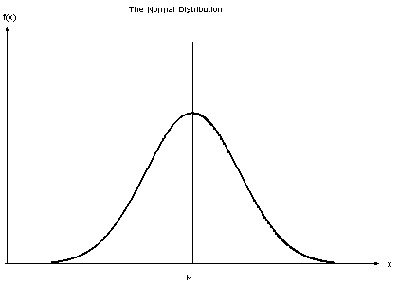Contents:


Many U.S. states don’t collect an estate tax or an inheritance tax—often combined and known as the “death tax”—but several do. States that don’t have this tax include California, Ohio, Michigan, and more. There are 33 in total, so it’s important to know which states have an estate tax or an inheritance tax, and which don’t.

The Rhode Island estate tax exemption was adjusted for deaths occurring on or after Jan. 1, 2011, based on the percentage increase in the Consumer Price Index rounded to the nearest $5. In 2015, the exemption increased to $1.5 million; it stands at $1.6 million as of 2021. The full table of Rhode Island estate tax rates is available on the state’s estate tax return Form RI-100A. Pennsylvania has an inheritance tax ranging from 4.5% to 15%. Inheritance tax rates depend on the beneficiary’s relationship to the decedent.
Hawaii
Generally the debate breaks down between a side which opposes any tax on inheritance, and another which considers it good policy. In the 19th century, the Revenue Act of 1862 and the War Revenue Act of 1898 also imposed similar taxes to fund the Civil War and the Spanish-American War. Each was repealed when the revenue was no longer necessary. The $11.2 million exemption specified in the Acts of 2010 and applies only to U.S. citizens or residents, not to non-resident aliens. Non-resident aliens have a $60,000 exclusion instead; this amount may be higher if a gift and estate tax treaty applies.
Where Not To Die In 2022: The Greediest Death Tax States – Forbes
Where Not To Die In 2022: The Greediest Death Tax States.
Posted: Fri, 13 May 2022 07:00:00 GMT [source]
Keep reading for all the most recent estate and inheritance tax rates by state. They apply to the assets a deceased person leaves behind, such as real estate, bank accounts, and securities. The estate tax, sometimes also called the “death tax,” is a tax that’s levied on a deceased person’s assets. In 2023, the federal estate tax ranges from rates of 18% to 40% and generally only applies to assets over $12.92 million. If you do think you might owe a state estate tax, you’ll be relieved to hear that although the tax rates vary by state, they are all far lower than the hefty federal estate tax rate of 40%. For the particular details of your state, explore the links below.
What Are Property Taxes?
Then the estate tax rates for the top four brackets increased by one percentage point. Finally, certain family-owned businesses received an estate tax exemption of up to $2.5 million. As of 2021, the exemption sits at $2.193 million, and the top tax rate is 20%. Of the six states with inheritance taxes, Nebraska has the highest top rate at 18 percent. Maryland—which also has an estate tax—imposes the lowest top rate at 10 percent. All six states exempt spouses, and some fully or partially exempt immediate relatives.

The controversial idea is to tighten the state’s “appraisal cap” on how much a home’s taxable value can rise each year. The House proposal would lower the cap from 10% to 5% — and expand the benefit to owners of business properties like grocery stores, restaurants and apartment complexes. Our experts have been helping you master your money for over four decades. We continually strive to provide consumers with the expert advice and tools needed to succeed throughout life’s financial journey.
Exemptions based on property type
The $2 million estate tax exemption was indexed for inflation beginning in 2014. An estate tax deduction of up to $2.5 million was available for certain family-owned business interests if the values didn’t exceed $6 million. Complete the entries for Lines 1 through 3 in Schedule B on the second page of the return. Show your computation of the pro-rata unified credit in the statement, and enter that figure in the Tax Computation on Line 7 on the front page of the return. If there was no foreign return, attach a copy of an inventory that sets forth the decedents assets and their values at the date of death, and explains how the figure shown on Line 3 of Schedule B was computed. Finally, most estates engage the services of both attorneys and CPAs or Enrolled Agents .
Iowa, Kentucky, Nebraska, New Jersey, and Pennsylvania have only an inheritance tax — that is, a tax on what you receive as the beneficiary of an estate. Kentucky, for example, taxes inheritances at up to 16 percent. Spouses and certain other heirs are typically excluded by states from paying inheritance taxes. In theTax Cuts and Jobs Actof 2017, the federal government raised the estate tax exclusion from $5.49 million to $11.2 million per person, though this provision expires December 31, 2025. Initially, some states conformed to this higher exclusion, though states have since decoupled from it, offering lower exemptions than those permitted by the federal government.
My husband and I have two children. He has a daughter from a … – Morningstar
My husband and I have two children. He has a daughter from a ….
Posted: Sun, 23 Apr 2023 11:10:00 GMT [source]
Estate taxes are based on the fair value of the deceased person’s assets that exceed the exemption amount. If you think you could have a problem, you probably should speak with an estate attorney so you can do some planning. But 17 states and the District of Columbia may tax your estate, an inheritance or both, according to the Tax Foundation. A tax exemption excludes certain income, revenue, or even taxpayers from tax altogether.
Already, the benefits of the state’s 10% cap flow to wealthier households, according to the Texas comptroller’s office. Properties owned by the federal, state, or local governments are typically exempt from property taxes. Property taxes are based on the value of your home and are calculated on a local basis. How much you pay will depend on your state and municipality’s tax rates and your property’s current value.
- Executors of the estate use Form 706 to figure the amount owed.
- In addition to the federal government, 12 states tax the estate of the deceased.
- Buying or selling a home is one of the biggest financial decisions an individual will ever make.
- This issue has been referred to as the “Carnegie effect,” for Andrew Carnegie.
The county spent about $44,000 to demolish the home and maintain the property, then sold it for $14,900. Senators want to raise the state’s homestead exemption — the amount of a home’s value that can’t be taxed by school districts — from $40,000 to $70,000; give an additional $20,000 bump to seniors; and give tax credits to businesses. Those ideas are part of the Senate’s $16.5 billion property tax package, which passed the chamber last month but haven’t gotten a hearing in the House. House Speaker Dade Phelan has said tightening the appraisal cap is the best way to cut property taxes, but Senate tax-cut proponents, housing experts and business groups predict the move would have dire consequences. If your property taxes are calculated every few years, and you suspect your property value has declined, you may owe less than you currently pay. Another reason to request reassessment is if you suspect an error in your property tax calculation, such as incorrect square footage or lot size.
Though this would not apply to a home, it could apply to the property taxes assessed on land you own. If you use your land for farming or agricultural purposes, check to see if you qualify for an exemption. The National Association of Counties maintains a list of property tax exemptions by state. Some exemptions relate to the home/property owner, others to the property itself. Property taxes vary based on where you live but start with a different baseline in each state.
The portability debits and credits is claimed by filing Form 706, specifically Part 6 of the estate tax return. Whether the personal representative has an obligation to make the portability election is presently unclear. Then, in another unusual move, Governor Mark Dayton signed legislation on March 21, 2014, which repealed the state gift tax retroactively.

Many states do not collect a “death tax”—estate or inheritance taxes—when someone dies. Tyler purchased her one-bedroom condo in Minneapolis in 1999. She regularly paid her property taxes until she moved to an apartment in 2010 due to concerns over increased crime in the neighborhood. After her move, Tyler didn’t pay her property taxes between 2011 and 2015, according to court documents. Hennepin County notified Tyler that she was delinquent on her taxes and allowed for a three-year period of redemption to pay the debt. The government eventually seized Tyler’s property and sold it in 2016.
- Property taxes, or real estate taxes, are paid by a real estate owner to county or local tax authorities.
- The Tax Foundation published research suggesting that the estate tax is a strong disincentive to entrepreneurship.
- The $11.2 million exemption specified in the Acts of 2010 and applies only to U.S. citizens or residents, not to non-resident aliens.
- Iowa, Kentucky, Nebraska, New Jersey, and Pennsylvania have only an inheritance tax — that is, a tax on what you receive as the beneficiary of an estate.
Similarly, bank accounts or other financial instruments which are “payable on death” or “transfer on death” are usually included in the taxable estate, even though such assets are not subject to the probate process under state law. It can cost a great deal of money to die—at least if you’re reasonably wealthy. Estates valued at more than the federal exemption of $11.7 million can expect to pay up to 40% in estate taxes at the federal level as of January 2021, although Congress continues debating whether to eliminate this tax. Rhode Island has an estate tax on estates worth over $1,595,156 as of 2021. The federal credit for state death taxes table has a tax rate of 0% for the first $40,000.
How much inheritance is tax-free? Do I have to pay an inheritance tax? – USA TODAY
How much inheritance is tax-free? Do I have to pay an inheritance tax?.
Posted: Mon, 20 Feb 2023 08:00:00 GMT [source]
After the net amount is computed, the value of lifetime taxable gifts is added to this number and the tax is computed. Washington, D.C., continues to tax estates at a top rate of 16%. It offers an annual exclusion amount of $5,870,000 for deaths in 2021. For example, amounts of at least $40,000 but less than $90,000 have a tax rate of 0.8% — but only if the estate is worth more than $4 million.
Five states don’t have a statewide sales tax , though you may still end up paying local sales taxes. The estate tax exclusion is $4,000,000 as of 2021, after the district chose to lower it from $5,762,400 in 2020. Starting in 2022, the exclusion amount will increase annually based on a cost of living adjustment. Relatives of the decedent’s former spouse, if the decedent was married to the former spouse at the time of the former spouse’s death.

